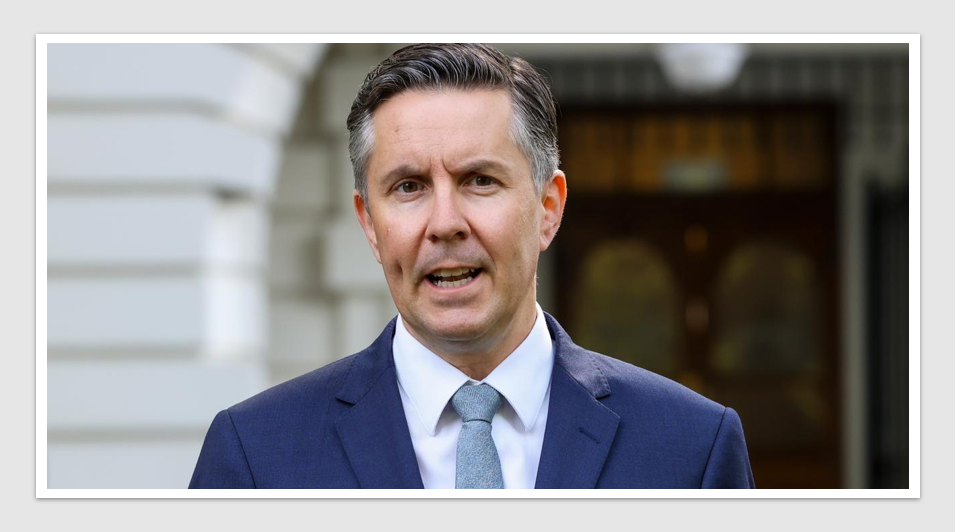News & Trends - Pharmaceuticals
Social prescribing – a remedy to counter chronic health problems

Australia should use social prescribing to counter rising chronic health problems, according to a new report from the Royal Australian College of General Practitioners (RACGP) and the Consumers Health Forum (CHF).
Social prescribing involves the referral of patients to non-medical activities, ranging from health and fitness programs to movie clubs and meditation.
The Social Prescribing report, launched today, recommends that social prescribing be incorporated into routine health care in Australia. The report comes after a roundtable co-hosted by the RACGP and CHF in partnership with the National Health and Medical Research Council Partnership Centre for Health System Sustainability, and a consultation process.
Surveys commissioned for the initiative indicate that while many patients in Australia would welcome such approaches, they are often not available.
Of the 200 plus consumers surveyed, 88 per cent agreed or strongly agreed that community programs and services could help their health and wellbeing. But 57 per cent said their GP never discussed using such services to improve their health.
In a survey of around 140 GPs, 70 per cent said they believed referring patients to community activities, groups or services improve health outcomes, yet most said they did not have links with such services.
RACGP President Dr Harry Nespolon said that GPs had a central role to play in social prescribing.
“At the frontline of healthcare, GPs are best placed to employ social prescribing to help improve their patients’ health and wellbeing.
“We’ve seen this approach used successfully internationally, such as in the United Kingdom and promising trials in Canada and Singapore – it could help shift the balance to focus to prevention and early intervention for patients.
Enhance corporate branding and boost thought leadership to attract and retain quality employees. Health Industry Hub is the only one-stop-hub connecting Australia’s Pharma, MedTech, and Biotech industry professionals. Get started with our proven digital media solutions developed by industry for industry.
“With the huge challenges we face regarding rising chronic illness, mental health issues, isolation and loneliness and the resulting costs, we urgently need to consider our approach to healthcare in Australia – social prescribing offers an innovative solution.
Dr Nespolon said that while some GPs already employ social prescribing in Australia and trials are underway by organisations such as IPC Health in Melbourne and Inala Primary Care in Brisbane, more resourcing and recognition is needed to implement it in a sustainable way.
“Social prescribing offers a huge opportunity to improve patient health and wellbeing and cut the costs of chronic disease, but it won’t happen unless everyone can access it.”
CHF CEO, Leanne Wells, said: “This is a vital development for patients. It provides a plan to develop more effective care.
“Social prescribing can help to address the social determinants of health, such as low education and income, which can affect people’s health and wellbeing. It has become particularly important given rising rates of chronic illness, mental health issues, social isolation and loneliness, many of which cannot be treated effectively with a medical approach alone.
“Health expenditure also shows that health care has increasingly shifted to expensive hospital settings. As our population ages and we see rising rates of obesity and chronic disease, the demand for such acute services will only increase if we continue on this same trajectory.
“We need to find more effective ways to keep people out of hospital in order for our health system to remain stable.”
Patients who participated in a social prescribing pilot in Melbourne found it helped significantly with their conditions and reduced their reliance on medications.
Register FREE to receive the latest news, innovations and insights from Health Industry Hub; the only one-stop-hub connecting Australia’s Pharma, MedTech and Biotech industry professionals and its key stakeholders.
Brenda Hoy, who has lived with depression for 30 years, described her experience with social prescribing as “life changing”.
Ms Hoy, 70, said the support she received to pursue her love of writing helped her to significantly reduce her reliance on medication and psychological counselling.
Another participant, Helen Longhurst, who has lived with the constant pain of fibromyalgia for 10 years, said she has “not looked back” since she had the opportunity to access social prescribing and was advised to join a chronic pain support group.
Through the program, Ms Longhurst, 58, was guided to find an alternative approach to manage her condition, joining a chronic pain support group. “I hope social prescribing will become much better known. It’s definitely a good thing,” she said.
The report includes a number of recommendations for the broader adoption of social prescribing, including:
· Incorporate social prescribing into the Commonwealth’s 10 Year Primary Health Care Plan, with recognition of the need for funding and implementation support to ensure a more comprehensive patient-focused health system
· Support for ‘link workers’ to help connect patients to community services, identifying where skills already exist and developing training and qualifications where needed
· Governments to work with local councils and peak organisations to identify community services and groups that could contribute to a social prescribing scheme
· Primary Health Networks (PHNs) to expand Health Pathways to include a social prescribing pathway for patients
News & Trends - Biotechnology

AusBiotech appoints new CEO: Former Sanofi corporate affairs and sustainability leader takes the helm
Biotech News: AusBiotech, the nation’s leading industry body for the biotech sector, has named former leader at Sanofi, Rebekah Cassidy, […]
MoreNews & Trends - MedTech & Diagnostics

Federal government invests in Siemens Healthineers scanner to ‘reduce wait times’ for cancer diagnosis
MedTech & Diagnostics News: The Albanese Government is investing $12 million through the 2024–25 Budget, to purchase and install a […]
MoreNews & Trends - MedTech & Diagnostics

Cardiac device benefits face more cuts, while technical services remain secure in the short term
MedTech & Diagnostics News: Starting from July 2024, Cardiac Implantable Electronic Devices (CIED) listed on the Prescribed List (PL) will […]
MoreNews & Trends - Biotechnology

CSL’s world-first gene therapy heads for MSAC evaluation
Biotech News: CSL’s world-first gene therapy for haemophilia B is scheduled for consideration at the upcoming Medical Services Advisory Committee (MSAC) […]
More